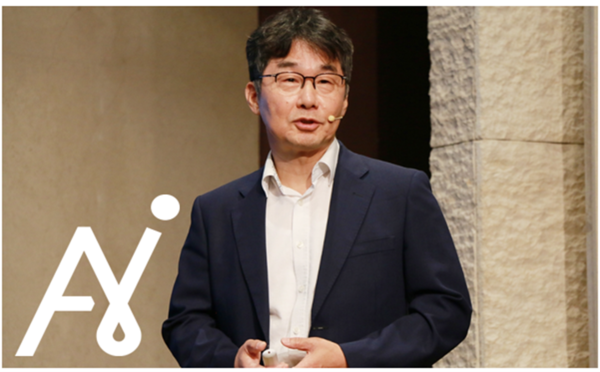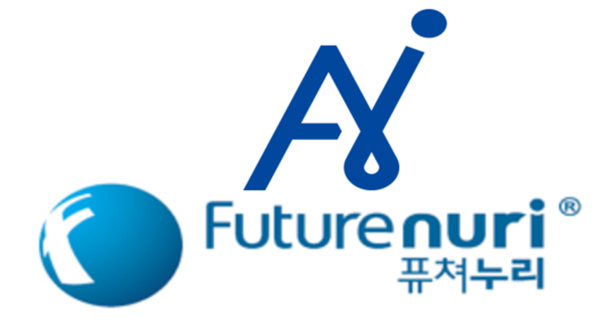
Futurenuri CEO Choo Jeong-ho explains the AI service "Futurenuri.ai (tentative name)" at the company's e-library solution customer meeting, "User Conference 2025." Futurenuri (CEO Choo Jeong-ho), a library and education solutions company, announced the development of the "AI Inference Service Platform (tentative name: Futurenuri.ai FAI)" utilizing Small Language Models (SLM) and Agentic RAG technology at the company's e-library solution customer meeting, "User Conference 2025," held from May 29th to 30th. This AI service is optimized for library environments.
"Futurenuri.ai (tentative name)" effectively addresses the high computational costs and resource consumption of existing large-scale language models (LLMs), while maintaining excellent response accuracy and consistency. In particular, considering that existing LLMs require high-performance GPUs and expensive infrastructure, making them difficult to introduce in environments with insufficient infrastructure such as libraries, a lightweight model-based system is evaluated to have high practicality. To this end, Futurenuri collaborated with the research team of Professor Sungpil Choi of the Department of Library and Information Science at Kyung Hee University (Ph.D. in Information and Communication Engineering at KAIST) to fine-tune various SLM models, including Naver's Korean-specific SLM model 'HyperCLOVA X SEED 1.5B', Google's 'Gemma-3-1B' and 'Gemma-2-2B', and Alibaba's 'Qwen2.5'. Afterwards, the performance of each model was compared and verified, focusing on functions specialized for library work such as paper summarization, library material guidance, and subject-based search support, and work was carried out to implement and integrate it into a multi-agent platform suitable for real environments. “We designed the system with a chatbot function to provide consistent answers to frequently asked questions from library users, such as library information, subject searches, material searches, and paper summaries,” said Byun Hoe-gyun, director of the Future Nuri Information Technology Research Institute. “By introducing a multi-agent architecture based on the LangChain framework, we can analyze the intent of the question and automatically search and link related documents to provide accurate answers.” Director Byun also stated, "With context retention based on conversation history, we are enabling continuous information retrieval beyond simple search. We are also preparing to apply features such as automatic grading, result analysis, and feedback after tests and assessments to not only general library operations but also representative educational solutions such as IBT/CBT assessment systems." Seo Jong-hwan, Head of Futurenuri's Strategic Business Division, stated, "Based on this AI agent platform development, we plan to actively advance into the overseas public and education markets, including Asia." He added, "The SLM-based lightweight AI solution is easy to localize and customize without expensive infrastructure, making it practically feasible for adoption in emerging countries and countries with many small and medium-sized institutions." He continued, "With its multilingual support and domain-specific expansion capabilities, it is also highly regarded for its usability in the global library and education solution market." He emphasized, "With this technology, Futurenuri has laid the foundation for leading global AI innovation and expansion in specialized areas of the library and education market beyond Korea."

Futurenuri CEO Choo Jeong-ho stated, "We will broadly apply this technology not only to existing library and education sectors, but also to new business areas." We plan to leap forward as an AI specialized company. To this end, we are continuously introducing and expanding our AI infrastructure and promoting the establishment and commercialization of our own Service Management System (SLM),” he added, adding, “We plan to gradually apply this to all business areas.” Futurenuri specializes in libraries and edutech, incorporating emerging technologies like artificial intelligence (AI), the Internet of Things (IoT), and the Metaverse into digital libraries and online assessment systems. Futurenuri is building a diverse range of services, including digital libraries, online assessments, learning management systems (LMSs), and video education, and is a global leader in digital library services.
Note: The main learning areas of generative AI for dissertations include Natural Language Processing (NLP), Knowledge Modeling (Retrieval-Augmented Learning), Data Science (Data Science/Machine Learning), Reasoning and Argumentation (REA), AI Ethics & Plagiarism Detection (AI Ethics & Plagiarism Detection), and Multimodal AI. In academic writing and proofreading, AI such as ChatGPT, Writefull and knowledge-based learning subject understanding, literature summarization AI such as Elicit, Perplexity and data analysis statistics, graphs, and code AI such as ChatGPT (Python), R Copilot and logic, inference hypothesis design, logic review AI such as GPT-5, Claude and ethics, plagiarism recognition plagiarism detection, citation checking AI such as Turnitin, iThenticate and multimodal learning table, image processing AI such as ChatGPT (Vision), Gemini are commonly used. The generative AI required for a dissertation is a knowledge-language fusion AI that has comprehensively learned various academic foundations such as linguistics, information retrieval, data science, logic, and ethics.

